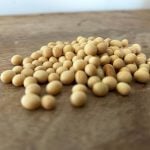Manitoba canola growers and the federal government plan to improve how federal canola agronomy research funding is co-ordinated in a new $6 million agreement. The Prairie Canola Agronomy Research Program (PCARP), announced Nov. 12, is the result of an agreement involving the Manitoba Canola Growers Association, Canola Council of Canada, Alberta Canola Producers Commission, Saskatchewan



